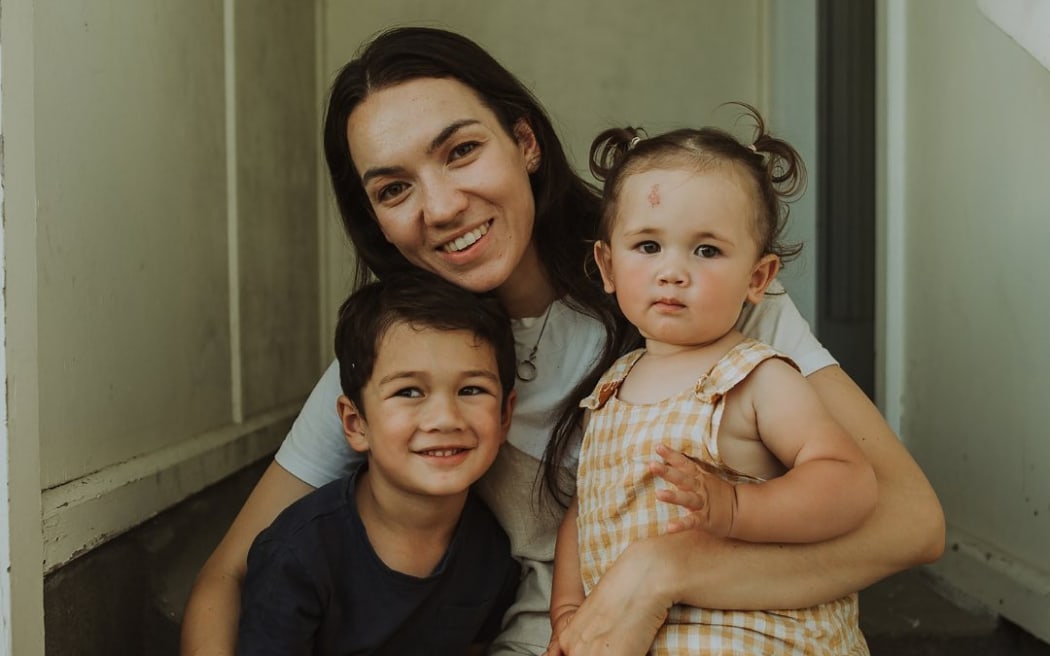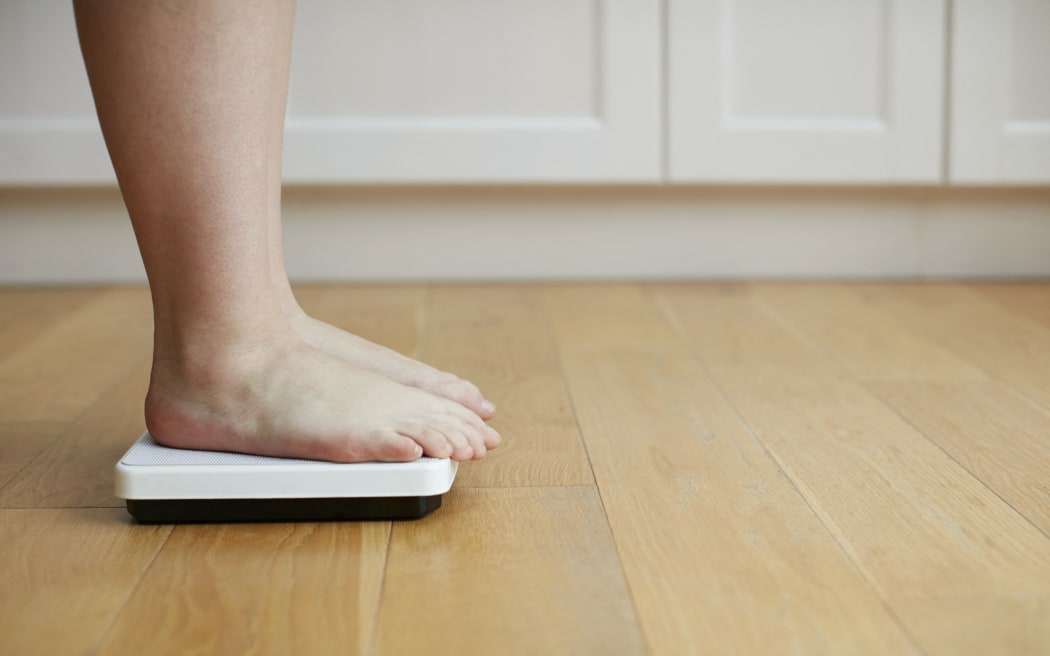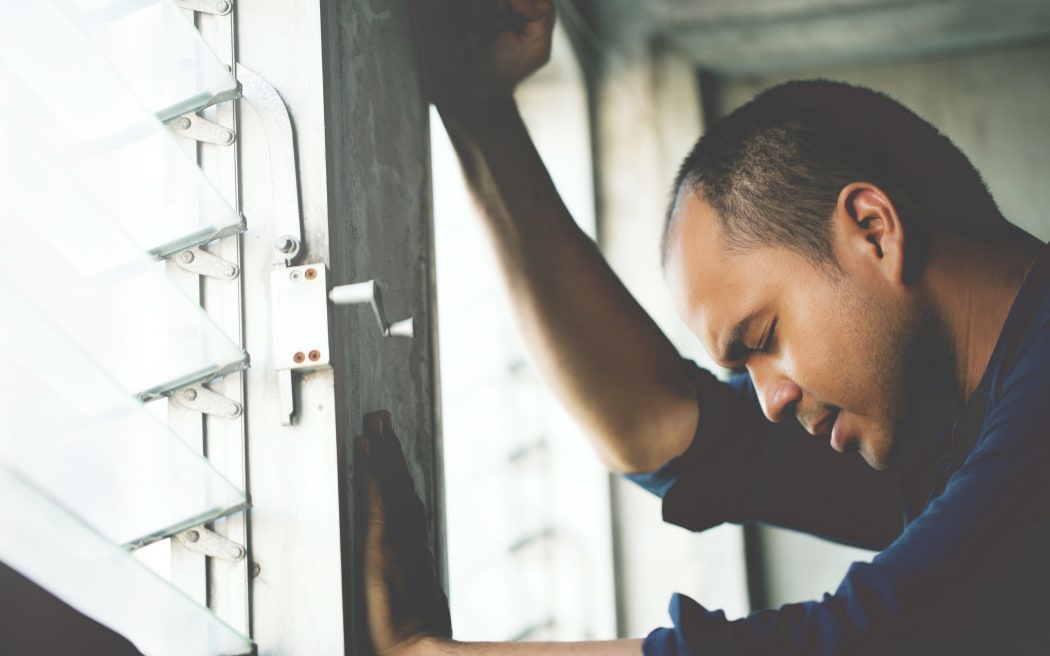1. Breathe your way back to empathy
Steady breathing is one of the first things to go when you find yourself dysregulated during a child's meltdown, says parenting coach Renee White.
"I breathe three slow, deep breaths, acknowledging how I'm feeling and saying something like 'I'm feeling really frustrated right now and I feel really stretched, and that's okay' … Then I can find empathy for myself and then be able to find empathy for my child and connect with him and listen to what he's saying."

Parent coach Renee White with her two children Photo: @_littlepeoplebigemotions
2. Teenage heartbreak deserves respect
Telling a teen that 'there's plenty more fish in the sea' is doing a disservice to their emotional experience, says psychiatrist and comedian Jo Prendergast.
"Even if we think of it as puppy love and [the relationship] would never have lasted, realise that this is a catastrophic grief and rejection for our teenagers and often the most painful thing they'll go through."

Photo: 123rf
3. Fatphobia - If you see something, say something
Calling out media depictions of fatness as a moral failing can help kids develop critical thinking skills towards the content they consume, says American writer Virginia Sole-Smith.
"There's a lot of children's media where fat characters are still routinely teased or demonised in some way. You can name that with your kids and say 'I really don't like how they're treating the fat person, they shouldn't be the butt of every joke. What do you think about this?'

Photo: SCIENCE PHOTO LIBRARY
4. Calm responses can help your kid develop an 'inner life coach'
Reflecting a child's experience back to them with empathy is more powerful than anything you can say directly, says psychologist Angela North.
'The more we practice empathic reflections with children, the more they can absorb that [calm] voice. And that becomes the voice in their head that says, 'You're okay, you've got this, it will pass, it doesn't feel comfortable, but it will pass.'

Photo: spukkato/123RF
5. Don't feel the need to be your child's "zany, cartoonish friend"
For children, boredom is a "useful mental experience" says developmental scientist Dorsa Amir.
"It can really stimulate creativity and problem-solving. Structuring your own time, motivating yourself to do things, figuring out your interests… these are all things that as adults we practice every day … I think [boredom] does stimulate a lot of skills that end up being life-long benefits."

Photo: 123rf
6. Check your expectations aren't based on an outdated 'timetable'
Generational and cultural changes mean that parenting adult children today is very different to any time before, says psychology professor Lawrence Steinberg.
"Parents need to know that there's a new timetable out there. In order to figure out whether your child is flourishing or floundering you have to be familiar with what the timetable is these days - not what it was when you were growing up."
![[New Mexico, United States] A teenage girl having a conversation with her grandfather (Photo by Mint Images / Mint Images / Mint Images via AFP)](https://media.rnztools.nz/rnz/image/upload/s--TX6ouTBe--/ar_16:10,c_fill,f_auto,g_auto,q_auto,w_1050/v1663902952/4LL01LN_074_58611_jpg)
Photo: MINT IMAGES
7. Walk the talk when it comes to healthy coping
The best way to help kids develop healthy coping skills is by modelling them, says clinical psychologist Lisa Damour.
"It's one thing if we come home from a long day and we're like 'oh my gosh, today was horrible. Where's the wine?' it's another thing if we come home and say 'Today was terrible, I'm going for a walk ... anybody want to come with me? That's really where we teach our kids how to cope."

Photo: CAIA IMAGE/SCIENCE PHOTO LIBRARY
8. Communicate that love is separate from expectations
A sense of "mattering" is key to a child's self-esteem and self-worth, says journalist Jennifer Berhenti Wallace.
"It's about seeing and knowing your child for who they are deep inside, away from their achievements. Are they funny? Do they show empathy to their classmates and siblings? Notice who they are and point it out to them, helping them build a sense of self that isn't reliant on their achievements."

Photo: 123rf
9. When lending money to an adult child, make it official
If large sums of money are passed between family members it's safer for both sides to have this documented in a formal agreement, says financial ombudsman Susan Taylor.
"Difficult conversations at the start will save you the potential of a whole lot of heartache later on."

Photo: 123rf.com
10. Tell yourself 'I'm a good parent. And this is a tricky moment'
When you're feeling overwhelmed, this is a useful mantra for keeping things in perspective, says psychologist Dr Becky Kennedy.
"As soon as your goodness feels called into question, you will not listen to anything your child is saying and you will become extremely defensive and angry because you feel like you have to defend yourself at all costs."

Breaking down the statistics across different ethnic groups, Indians topped other communities in terms of concern about mental illness. Photo: methaphum/stock.adobe.com
11. Check out influencers for yourself
If you're concerned that a young person is following 'toxic' internet personalities, familiarise yourself with their content before having a judgment-free chat, psychologist Matt Defina.
"Go and absorb some of [their] content, which you can watch in incognito mode so it doesn't come in your algorithm too much. See what you can connect with and what triggers you."

Photo: Andrew Brookes, AB Still Ltd, www.andrewbrookes.co.uk
12. It's okay to feel like a good parent only 30 percent of the time
As long as your kids are safe physically and emotionally, a ratio of feeling in tune with them around one-third of the time, trying to figure them out in another third and not having a clue for a third is fine, says clinical psychologist Karen Nimmo..
“Try not to beat yourself up if you're feeling like you're failing because life is long and there will be some good times ahead as a parent – they do come.”

Photo: Agung Pandit Wiguna

